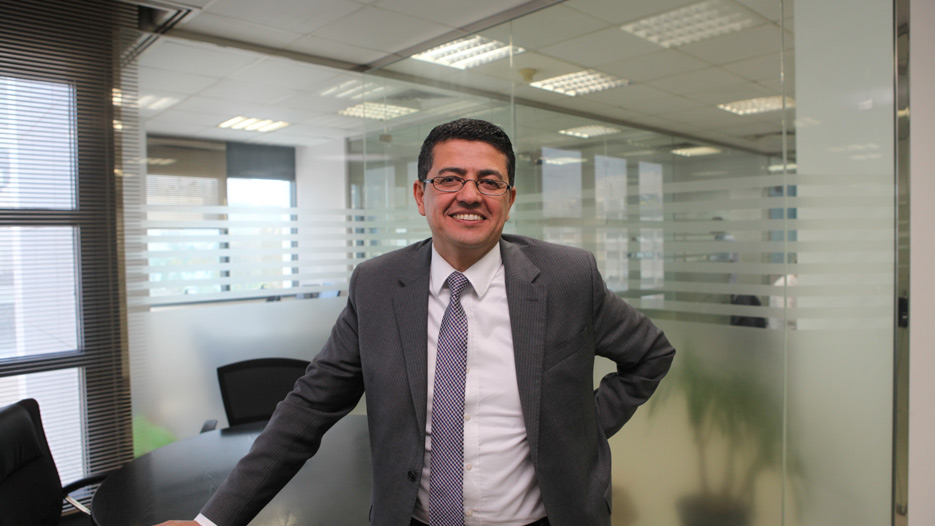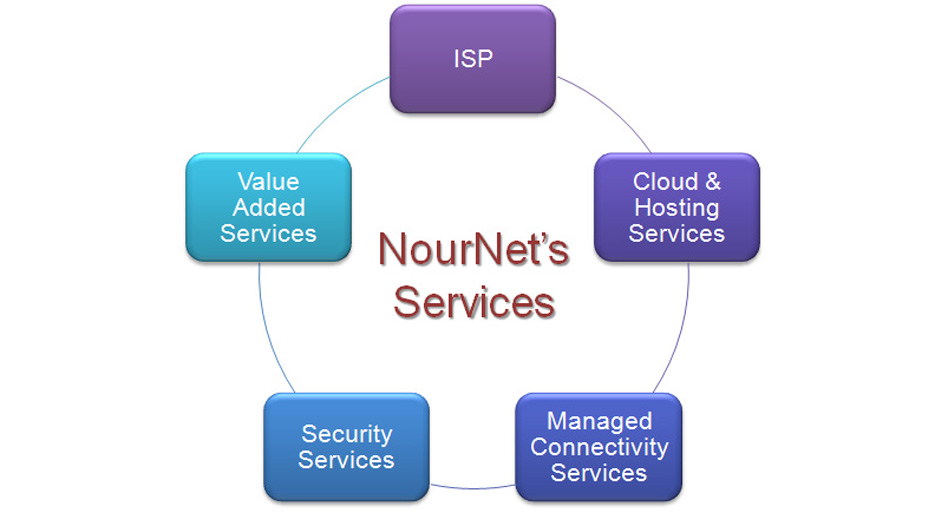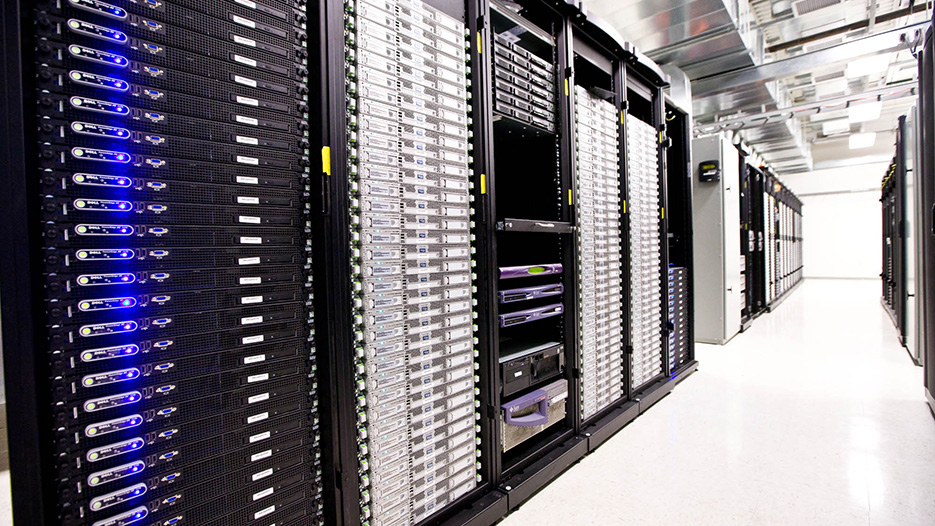Amjad Hafez leads NourNet’s transformation to become a top player in Saudi ICT space
NourNet sees its self at the launch-pad of becoming one of the regions most important players in the converged space between information and communication technologies.

After twenty plus years of experience at the vanguard of the emerging ICT sector in the Middle East, Amjad A. Hafez – founder and CEO of NourNet has firmly established his company as a leading-edge player of ISP/NSP solutions in Saudi Arabia. Focused on the enterprise market and offering managed infrastructure solutions in areas like managed connectivity, colocation and managed IT services across the Kingdom of Saudi Arabia and wider Middle East.
NourNet has been actively working to enhance the level of managed IT services extending into the corporate market segment in both Saudi Arabia and the wider region. Whilst introducing new services that help their clients focus on their own core businesses in areas like: managed services, data communications, telecom, hosting, IT infrastructure support, network integration services and Cloud computing.
With ICT spending in Saudi Arabia reaching $35.9 billion in 2016 as organizations across the Kingdom have started to embrace digital transformation initiatives in an effort to optimize costs and improve their business process efficiencies. The Saudi ICT market is now highly competitive and with only the most progressive and strategically placed service providers like NourNet with strong enough capabilities built around these emerging technologies best placed to capitalize on these transformative and transgresive trends.

Having been granted a full University scholarship for scientific distinction Amjad A. Hafez graduated in 1994 from Al-Jami’ah Al-Urdunia in Jordan with a Bachelor of Science Degree in electrical communications engineering and was by his own admission a highly disciplined, honor-list student who always believed that people with passion and vision can drive positive change in both their societies and the wider world.
With early career milestones as a senior account manager at Global One and then AlFaisaliah Group (AwalNet) selling and managing enterprise accounts for clients such as Arab Bank, ABC Bank IT was always his passion planning his studies and career accordingly saying, “My early career years gave me the exposure and understanding of the industry and the disruptive impact it can have on business locally, regionally and globally”. Perceiving in these early years that the dramatic shift from pure technical engineering expertise to the business application side of technology, which helped him to map how complex technologies can be harnessed for the needs and values of customers and can readily be applied to their enterprises.
“My early career years gave me the exposure and understanding of the industry and the disruptive impact it can have on business locally, regionally and globally”.
Amjad maintains that his biggest challenges faced after launching NourNet were in constituting the right team, inculcating passion and creating a true service culture and then in bringing the best-of-breed of technologies into the Middle East.
In a bid to optimize their costs and increase their levels of operational efficiency, organizations operating in Saudi Arabia increasingly have to invest in transformative business initiatives and using technology to support enterprise transition. With 3rd Platform technologies such as mobility, cloud, and big data analytics finding increasing traction, yet macroeconomic factors such as low oil prices and regional instability are expected to slow the strong growth rates that the Kingdom’s ICT market has become accustomed to over the last few years.
Despite these head-winds the public cloud market in Saudi Arabia is stet to grow by 44.5 percent year on year in 2016 to total $63 million as an increasing number of end-user organizations migrate non-core workloads such as productivity and team collaboration, sales and marketing, and human capital management to the cloud. With Cloud services playing a particularly vital role in Saudi Arabia’s digital transformation journey, with more than a third of Saudi organizations having already invested in cloud services. All trends that NourNet stands strategically positioned to reap dividends from.
Despite these head-winds the public cloud market in Saudi Arabia is stet to grow by 44.5 percent year on year in 2016 to total $63 million as an increasing number of end-user organizations migrate non-core workloads such as productivity and team collaboration, sales and marketing, and human capital management to the cloud.
As Amjad Hafez explained, “For the Middle East to stay at the top of the curve in new technology adoption the current economic challenges mean that only those businesses who are able to ride the current wave are those who deploy the right technology that will enable trends such as digital and business transformation.”
He is resolute in his belief that NourNet can now constitute a major component in the DNA of the economy. With a strong belief in the local expertise and in bringing global players to the Saudi Arabian ICT arena thus harnessing benchmark global technologies, “In this way NourNet can play a vital role in the collective good for the people of the region” he says.
With domestic skills shortages and the growing complexity of operating and maintaining IT infrastructure both encouraging business leaders to consider remotely delivered services such as cloud as a viable cost-effective alternative. As Amjad elucidated, “from my perspective, the technology market is passing through a huge service redefinition exercise, hardware companies are expanding into software industries, software companies are shifting their business model into services, and so everyone is reshaping. Whilst the telecoms companies are trying to become ICT players, and the ICT players are trying to become cloud and solution providers, so it is therefore a very interesting time before the market, matures and shapes its direction, both locally & globally.”

Certainly the improved availability of commercial datacenter space – led mainly by telecom operators — has been encouraging the consumption of cloud services; however, IT security concerns and the changing threat landscape have considerably hampered what could have been an era of rapid growth for cloud services, and as the largest IT market in the region, and still relatively unsaturated when it comes to cloud services. Thus Saudi Arabia represents a considerable revenue opportunity for local, regional, and global service providers, as a growing number of end users will turn to cloud services to optimize their IT operations, both from a cost and efficiency perspective.
NourNet sees its self at the launch-pad of becoming one of the regions most important players in the converged space between information and communication technologies, Amjad averred, “Both IT and Communication technology have their own dynamics and until you find the right recipe to blend them, the transition becomes more of a spaghetti. When we embarked upon this journey, we made sure that we understood the dynamics of both sides of the divide and carefully carved out a niche for ourselves, this approach has proved to be winning formula for us and is why more and more customers across multiple industries are talking to NourNet to provide converged information & communication solutions.”
In terms of the ambitions he now has for his company, Amjad was unequivocal, “I truly hope we’ll be able to diversify and grow our NourNet model to help uplift business capabilities for stronger economies and to replicate this model in neighboring countries and become an essential part of their economic DNA.”
Amjad Hafez finished by declaring, “I truly believe technology is the only way for our nations to prosper, and I want to be remembered as a helping hand in building the base of this ecosystem to lead the change in our nations, I don’t mind rolling my sleeves up and getting involved in that.”